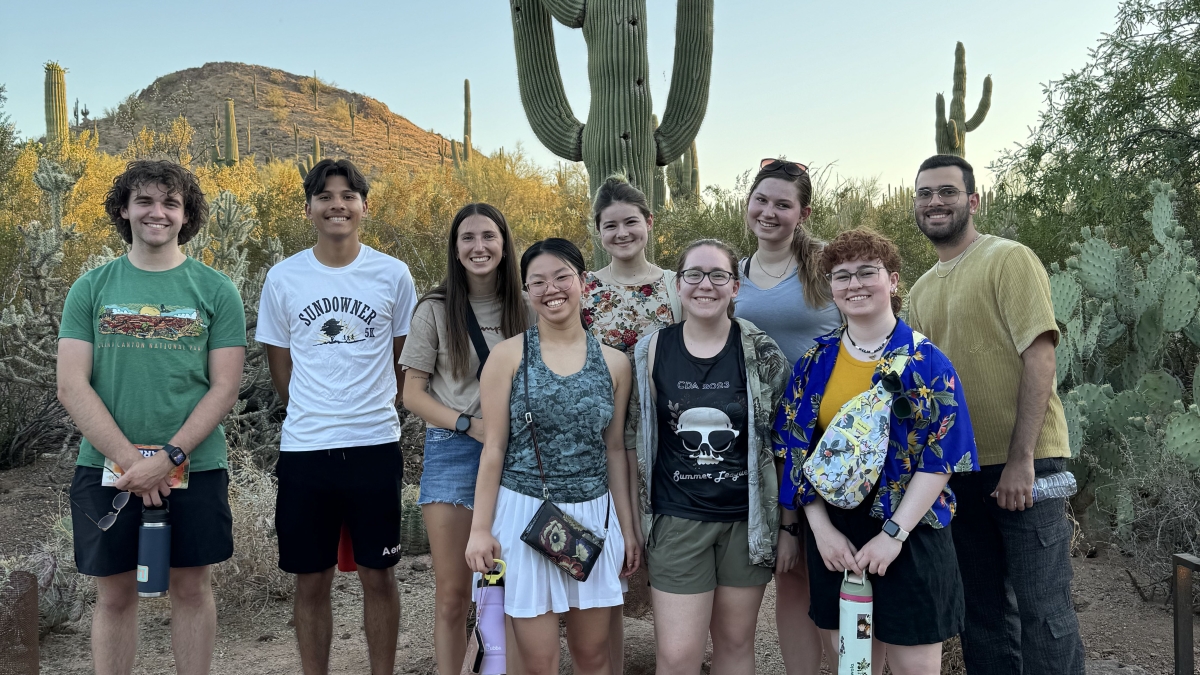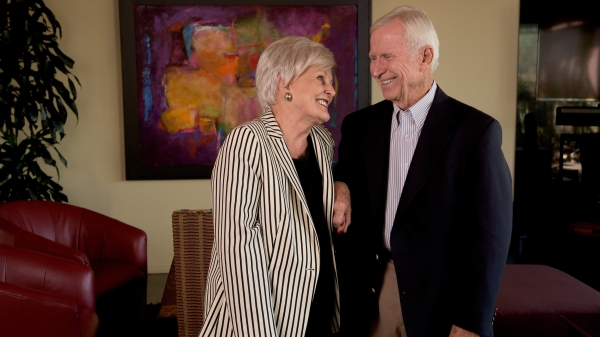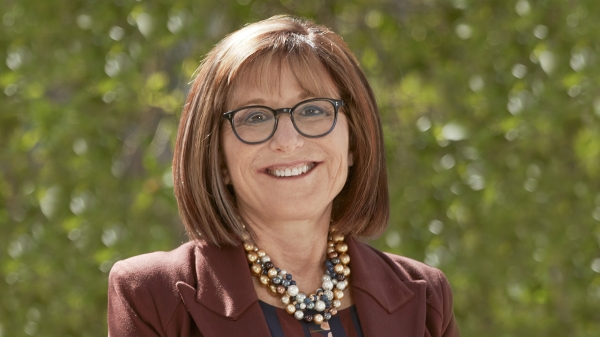ASU hosts 10 students from across the country in 10-week NSF-funded summer program
High-impact sustainable chemistry and catalysis program provides valuable research experience

Summer 2024 ASU School of Molecular Sciences REU program participants pose for a group photo on a hiking field trip. Photo courtesy ASU School of Molecular Sciences
For many students who choose to attend smaller liberal arts or community colleges, the opportunity to conduct hands-on research is hard to come by. Thanks to the Research Experiences for Undergraduates (REU) program, they’re now getting that chance.
Funded by the National Science Foundation, REU sponsors a small group of students, typically college sophomores and juniors, to conduct research with scientists at some of the country’s leading research institutions. And faculty at Arizona State University's School of Molecular Sciences recently welcomed 10 such undergraduate students from across the country to the Tempe campus to participate in the 10-week program, which runs through July 26.
“I’ve never done research, so coming here, I didn’t know exactly what to expect,” said Kaelyn Pluta, who attends Tennessee Wesleyan University. “I found that I love it! I’m excited to come to the lab every day. I still have a lot to learn, but now I’m looking forward to going to grad school.”
Students in the REU program receive one-on-one mentorship as they work on research projects with school faculty and graduate students. They also attend professional development seminars, participate in weekly meetings and interact with research scientists from local companies. At the end of the program, students present their results to a large audience of scientists who ask questions and provide feedback.
School of Molecular Sciences Associate Professor Ryan Trovitch, principal investigator on the project, is pleased with the continued strength of the program.
“This year, over 200 students from across the country applied for this opportunity,” Trovitch said. “The students participating this year are very happy to be here to conduct experiments using instrumentation they don’t have access to at their colleges. This program allows us to impact students who otherwise might not consider a career in research.
“When this REU site was being planned, we knew that faculty in the School of Molecular Sciences would provide participants with engaging research projects and offer hands-on mentorship in the techniques required to be successful. Now that some of our original REU fellows are in graduate school, they are leveraging their research experiences at ASU to make meaningful contributions to the discipline of chemistry while applying sustainable principles.”
REU participant Cole Pearson said he appreciated the opportunity to participate in the program at ASU because of its reputation for “cutting-edge research.”
“ASU has been investing heavily in research, rivaling MIT and Stanford in recent years,” he said. “I’m grateful to be here; coming to a cutting-edge research university has been a great opportunity for me. I’m a junior at Shippensburg University of Pennsylvania, and working on instruments I’ve only read about is amazing; it’s giving me a great foundation to build upon as I look toward graduate school.”
REU students from previous years expressed the impact the program has had on their academic careers.
“I strongly believe that my experience at ASU really motivated me to go to graduate school and really served as a catalytic step in getting to the point where I am,” said past participant Emanuel Flores. “From literature meetings, techniques used, to general lab procedures and correct use of instruments, the experience I had at ASU really served as a confidence booster for me while I was doing my undergraduate degree.”
Abigail Kerr, who attended the program in 2022, said that her experience participating in the ASU REU program was “monumental for my understanding of chemistry, research and learning in general.”
“As a first-generation student, I had no knowledge or experience in research but I knew that I loved chemistry and mathematics. Brandon Ness, Dr. Heyden, Sthitadhi Maiti and Michael Sauer were all incredibly encouraging and supportive through my introduction to computational chemistry,” Kerr said. “Working alongside them taught me so many great skills that have carried me forward to today, from molecular dynamics and coding languages to scientific communication in general.”
The faculty, in turn, have been just as impressed with the students.
“The faculty mentors and I,” Trovitch said, “have been impressed with the level of dedication and excitement that the REU participants have brought to our research environment this year and every year. We are proud of them and can’t wait to see what they will accomplish over the course of their careers."
More University news

Elva Coor, wife of former ASU president, remembered as 'a catalyst for enduring change'
Elva (Wingfield) Coor was passionate about the community, politics and outdoor activities.She grew up on a ranch in Camp Verde, Arizona, where she raised steers, rode horses, milked cows and learned…

9 ASU faculty receive Fulbright US Scholar awards for 2024–25
Using AI to optimize rooftop solar panels in North Macedonia. Charting immigration and human rights efforts in Spain and Morocco. Improving health-records data systems in Uganda.These projects and…

Helitzer stepping down as dean of ASU College of Health Solutions
When Deborah Helitzer took over as dean of the College of Health Solutions, she faced the challenge of trying to do something that hadn’t been done before.As she steps down from the position on June…